Webinar Series
The purpose of these webinars are to provide guidance on implementing the updated VA/DOD Clinical Practice Guideline for the Assessment and Management of Patients at risk for Suicide (CPG).
This webinar series is now part of the Suicide Risk Management (SRM) Lecture Series. Each quarter, the SRM lecture offers a spotlight on the CPG. To receive information on these lectures, like topics, speakers, and registration links, please subscribe to this email distribution list.
These courses are jointly offered by the Rocky Mountain MIRECC, the VA Office of Suicide Prevention and the Veterans Health Administration Institute for Learning Education and Development.
CPG webinars are listed below. If you want to view all of the lectures, or specific ones based on year, presenter, or category, use the options below to filter the content as desired. If your filter selections produce no results, try setting the "Year" filter to "All" for best results.
Suicide Risk Stratification Updates
August 13 2025 2:00 ET Bridget Matarazzo, PsyD
August’s topic looks at how risk stratification, when completed as part of a comprehensive assessment, can facilitate clinical impressions regarding suicide risk and aid in identifying risk mitigation strategies and treatment decisions.
This presentation will explore acute and chronic risks at all three levels of severity (low, intermediate, and high). It will also highlight clinical suicide risk stratification tools and training that providers can utilize to inform safety needs and clinical care.
Following this live lecture, participants will be able to:
- Identify benefits of suicide risk stratification once risk has been identified.
- Describe importance of assessing and evaluating both acute and chronic risk.
- Examine differences between low, intermediate and high risk at acute and chronic risk levels and how that informs best risk mitigation interventions.
Bridget Matarazzo, PsyD
Dr. Matarazzo is the Director of Clinical Services at VA’s Rocky Mountain MIRECC for Suicide Prevention. She is Co-Director of VA’s Suicide Risk Management Consultation Program and leads a team that provides implementation support for multiple national VA suicide prevention programs, such as REACH VET and the VA Suicide Risk Identification Strategy. She is also an Associate Professor in the Department of Psychiatry at the University of Colorado, School of Medicine.

The Emerging Evidence Around Repetitive TMS in Suicide Prevention
May 14 2025 2:00 ET Elizabeth Fenstermacher, MD
Explore the potential of repetitive transcranial magnetic stimulation (rTMS) as a transformative treatment option for Veterans. rTMS is an FDA-approved, safe, and effective treatment for conditions including depression, anxiety with depression, smoking cessation, and obsessive-compulsive disorder. It is particularly beneficial for individuals who have not responded to traditional treatments like medication and psychotherapy. Studies show that approximately 50-60% of individuals with treatment-resistant depression experience a significant reduction in symptoms with rTMS, and 20-30% achieve full remission.
This webinar will examine the inclusion of rTMS in the 2024 revised VA/DoD Clinical Practice Guidelines (CPG) for the Assessment and Management of Patients at Risk for Suicide. Although currently classified as a somatic treatment with "insufficient evidence to recommend for or against," emerging research highlights its potential in addressing conditions often linked to suicide risk, especially depression.
Following this live lecture, participants will be able to:
- Describe the basic mechanisms and common indications for rTMS.
- Review the basics of rTMS for depression, including treatment targets (i.e., brain regions) and the differences between standard rTMS and accelerated protocols.
- Discuss the CPG for Suicide Prevention current recommendation for rTMS in the context of the emerging evidence base of the role of rTMS in suicidality.
Elizabeth Fenstermacher, MD
Dr. Fenstermacher is the founder and medical director of the CU Medicine Transcranial Magnetic Stimulation (TMS) Clinic, as well as a deep brain stimulation programmer for psychiatric patients at the University of Colorado. In addition to Dr. Fenstermacher's clinical roles, she has created and supervises a resident and fellow rotation in TMS at the University of Colorado. She lectures regionally and nationally on TMS.

Registration
VA TMSSuicide Prevention 2.0 Clinical Telehealth: Implementation of an evidence-based psychotherapy program to reduce suicide behavior in U.S. Veterans
November 13 2024 2:00 ET Jessica A. Walker, PhD, LP
In this webinar, you’ll learn about VA’s Suicide Prevention (SP) 2.0 Clinical Telehealth program that incorporates several recommendations from the VA/DoD CPG for the Assessment and Management of Patients at Risk for Suicide. Implemented nationwide for the past four years, Dr. Walker will discuss the process and outcome variables to explain the efforts to establish and sustain this program. Short-term Veteran outcomes will also be assessed.
Following this live webinar, you will be able to:
- Demonstrate increased awareness and knowledge about the implementation of VA’s SP 2.0 Clinical Telehealth program.
- Describe the inclusion criteria for the SP 2.0 Clinical Telehealth program.
- Identify three evidence-based treatments within the SP 2.0 Clinical Telehealth program.
- Summarize the preliminary short-term Veteran outcomes from the SP 2.0 Clinical Telehealth program.
Jessica A. Walker, PhD, LP
Dr. Walker is a licensed psychologist with 15 years of service with VHA. She currently serves as the National Suicide Prevention Clinical Telehealth Coordinator, overseeing an initiative that provides virtual evidence-based psychotherapy interventions to Veterans with a history of suicidal self-directed violence behavior. Her previous VA work has included coordinating the National Problem-Solving Training (PST) program and the VISN 6 Telemental Health (TMH) Post Traumatic Stress Disorder (PTSD) Hub. A graduate of Lehigh University, she has authored and co-authored over 20 publications and presentations focusing on topics including psychotherapy supervision, problem-solving training, multiculturalism, and telemental health.

What’s Changed in the 2024 Revised CPG for Suicide Prevention?
August 14 2024 2:00 ET Bridget Matarazzo, Psy.D. and Hal S. Wortzel, M.D.
The 2024 VA/DoD Clinical Practice Guideline (CPG) for the Assessment and Management of Patients at Risk for Suicide was just released. This program will familiarize participants with the new CPG, emphasizing changes that are particularly relevant to clinical practice. Strategies for implementing the new CPG and various recommendations will be offered.
Following this live webinar, participants will be able to:
- Increase their familiarity with the new 2024 CPG for assessment and management of suicide risk, including pertinent changes.
- Implement the new CPG for the assessment and management of patients at risk for suicide in their clinical practice.
Bridget Matarazzo, Psy.D.
Dr. Matarazzo is the Director of Clinical Services at VA’s Rocky Mountain MIRECC for Suicide Prevention. She is the Co-Director of VA’s Suicide Risk Management Consultation Program and leads a team that provides implementation support for multiple national VA suicide prevention programs, such as REACH VET and the VA Suicide Risk Identification Strategy. She is also an Associate Professor in the Department of Psychiatry at the University of Colorado School of Medicine.
Hal S. Wortzel, M.D.
Dr. Wortzel is a forensic neuropsychiatrist at the Rocky Mountain MIRECC, where he serves as Director of Neuropsychiatric Consultation Services and Co-director of the National Suicide Risk Management Consultation Program. He is an Associate Professor of Psychiatry, Neurology, and Physical Medicine & Rehabilitation at the University of Colorado. He serves as the Michael K. Cooper Professor of Neurocognitive Disease and as Faculty for the Program in Forensic Psychiatry. Dr. Wortzel maintains a private practice in Forensic Neuropsychiatry and Behavioral Neurology and has consulted on numerous criminal and civil cases. Areas of research/scholarship interest include suicide risk management, aggression, and suicide in the context of PTSD and TBI, brain injury litigation, and the application of emerging neuroscientific tools to the legal arena.

Cultural Considerations in DBT
May 8 2024 2:00 ET Meredith Sears, Ph.D.
Dialectical behavior therapy (DBT) is an evidence-based psychotherapy recommended by the VA and Department of Defense (DoD) joint clinical practice guidelines for the treatment and management of suicidality to treat borderline personality disorder (BPD) and self-directed violence. DBT training has not yet been rolled out nationally to VA facilities, though VA mental health providers have identified it as a high priority for future training needs. Adaptations of DBT and other interventions to the culturally diverse needs of the patient population are known to improve treatment engagement and effectiveness. This webinar will review the existing literature on cultural considerations in DBT and provide clinical recommendations designed to improve clinician cultural competency and clinical outcomes in a diverse patient population.
Following this live webinar, participants will be able to:
- Identify the patient populations with whom DBT has been shown to be effective.
- Describe the Biosocial Theory of BPD.
- Describe the existing literature on cultural adaptations to DBT.
- Recommend cultural adaptations to DBT implementation.
Meredith Sears, Ph.D.
Meredith Sears, Ph.D., is a Suicide Prevention Coordinator at the San Francisco VA; a consultant for the national dialectical behavior therapy (DBT) training roll-out in VA’s Suicide Prevention 2.0 program; a Health Sciences Associate Clinical Professor in the Department of Psychiatry and Behavioral Sciences at the University of California, San Francisco; and the president of the Greater San Francisco Bay Area chapter board of the American Foundation for Suicide Prevention. From 2016 to 2023, Dr. Sears also served as the co-lead and training coordinator of the San Francisco VA DBT program.

Ketamine for Depression and Suicide Prevention in VA
February 14 2024 2:00 ET Eric Hermes, MD
Treatment-resistant depression and suicidality are common and interrelated problems for Veterans. Ketamine is a dissociative anesthetic drug that has recently been investigated as a treatment option. Eric Hermes, MD, will review the history and role of ketamine in the treatment of depression and suicidality and discuss the implementation of ketamine delivery programs across VA. This webinar will improve participant’s understanding of the role of ketamine in VA mental health treatment.
Following this live webinar, participants will be able to:
- Define treatment-resistant depression and its approximate prevalence among Veterans using VA services.
- Identify the role of ketamine in the treatment of Veterans with depression and suicidality in VA.
- Describe the deployment of ketamine and other somatic treatment programs across VA.
Eric Hermes, MD
Dr. Hermes is the Director for Psychopharmacology and Somatic Treatments in the VA Office of Mental Health and Suicide Prevention. He is a psychiatrist and associate professor in the Department of Psychiatry at the Yale University School of Medicine, where he studies implementation and quality improvement in mental health services.

Challenging Barriers to Safety Planning: Considering Context and Clinical Complexity
November 8 2023 2:00 ET Colleen Becket-Davenport, PsyD and Georgia Gerard, LCSW
Safety Planning is an effective, evidence-based intervention for Veterans with suicidal ideation and/or a history of suicide attempts. Contextual circumstances and clinical complexity can impact the ability to implement and complete a high-quality Safety Plan. Providers and Veterans often encounter challenges that can be barriers to effective implementation of the Safety Plan after it is developed. This live, knowledge-based virtual presentation for interprofessional health care teams will help improve confidence and foster greater collaboration between providers and Veterans. A review of the Safety Plan mobile app will also be provided. This program will help bridge the knowledge gap for providers when it comes to the Safety Planning process and working with Veterans who are at increased risk for suicide.
Colleen Becket-Davenport
Colleen Becket-Davenport is a clinical psychologist at the National Center for PTSD, Dissemination and Training Division. She is an Implementation Facilitator and the Communication and Training Lead for the Tech into Care Program. She is also a consultant for the PTSD Consultation Program. As part of her role, Dr. Becket-Davenport delivers trainings on VA mental health apps and works with health care teams to incorporate apps into care. She received her Psy.D. from the Wright Institute in Berkeley, CA.
Georgia Gerard
Georgia Gerard received her MSW from the University of Denver and is a licensed clinical social worker with the Mental Illness, Research, Education Clinical Center (MIRECC) at the Rocky Mountain Regional VA Medical Center. Her background is in the assessment of suicide risk in Veterans and suicide risk management best practices. She joined the Rocky Mountain MIRECC in 2012 where she serves as a consultant on the VA’s Suicide Risk Management Consultation Program and provides implementation and technical assistance support for VA national suicide prevention programs.

Firearm Acquisition & Ownership — Decision Making Within the Context of Injury Risk
August 9 2023 2:00 ET Joseph Simonetti, MD
Firearm safety counseling is recommended for individuals with elevated suicide risk but there are often obstacles that hinder the adoption of firearm safety recommendations. Joseph Simonetti, MD, MPH, will guide a discussion about improving the understanding of firearm ownership and use as it pertains to individual's decisions about injury risk. This understanding is necessary when discussing firearm safety behaviors with patients.
Following this live, knowledge-based webinar, clinicians and health care teams will be able to:
- Recognize reasons Americans choose to own and use firearms
- Describe firearm acquisition among Americans during the pandemic era
- Describe perceptions of injury risk among American firearm owners
Joseph Simonetti, MD
Dr. Simonetti is an internal medicine physician and clinical investigator who focuses on developing patient-centered firearm safety interventions for individuals at risk of suicide. Additionally, his work supports VA and community-based clinicians in delivering evidence-based and culturally competent lethal means counseling for at-risk Veterans.
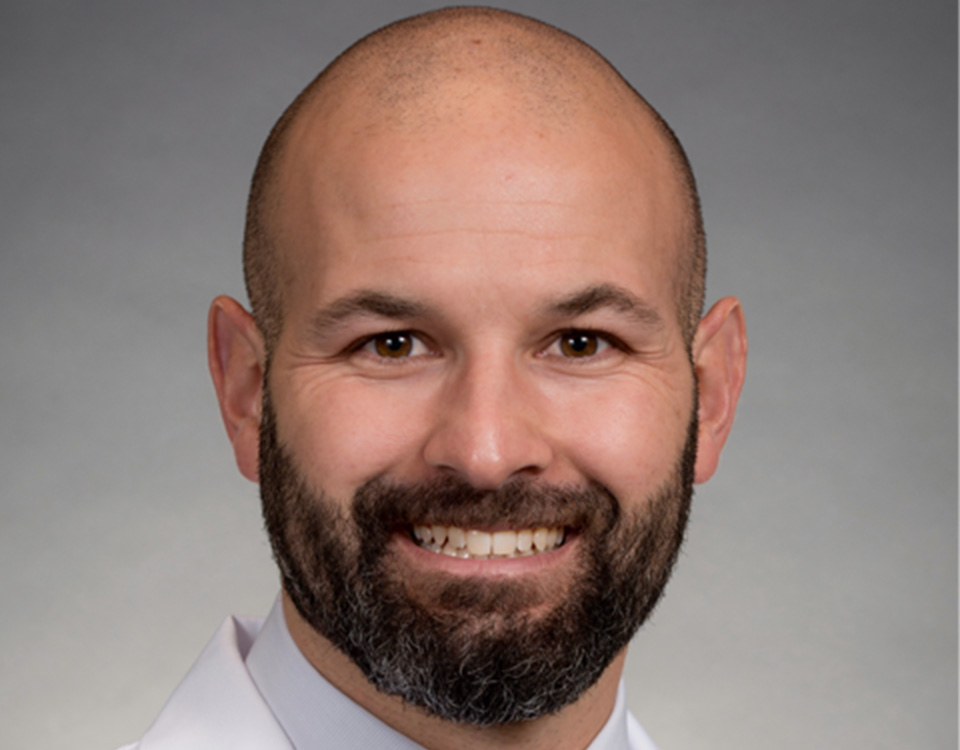
VA Suicide Risk Identification Strategy (Risk ID): Utilizing the CPG to Inform Standardized Suicide Risk Screening and Evaluation
May 10 2023 2:00 ET Suzanne McGarity, PhD
VA's enterprise-wide Suicide Risk Identification strategy, Risk ID, is consistent with multiple recommendations outlined in the VA/DoD Clinical Practice Guideline for the Assessment and Management of Patients at Risk for Suicide. This month, Suzanne McGarity, PhD, will discuss the recommendations and share real-world examples of how they can be implemented in clinical practice.
Following this live, knowledge-based webinar, clinicians and health care teams will be able to:
- Describe the components of the VA's Suicide Risk Identification strategy (Risk ID);
- Identify three CPG recommendations that were incorporated into Risk ID;
- Recognize barriers and facilitators to implementation of universal suicide risk screening
Suzanne McGarity, PhD
Dr. McGarity is a Clinical Psychologist in the Rocky Mountain MIRECC where she serves multiple roles. She provides technical assistance as a member of the VA Risk ID and SPED implementation team and consultation services for the Rocky Mountain MIRECC's local and national Suicide Risk Management consultation program. She is also a consultant with the Advanced Safety Planning Intervention Training Program.

Latest Research Updates on Caring Contacts for Suicidal Patients
February 8 2023 2:00PM ET Kate Comtois, PhD, MPH
Caring Contacts is an intervention strategy that has been shown to reduce suicidal ideation, attempts, and deaths. This month, Kate Comtois, PhD, MPH, will provide information to help providers understand Caring Contacts, review the latest research concerning the intervention, and how to scale and implement Caring Contacts with Veterans.
Following this live, knowledge-based webinar, clinicians and health care teams will be able to:
- Summarize the history, rationale, and common characteristics of the Caring Contacts intervention
- Describe how to scale and implement Caring Contacts to include text message and postal mail
Kate Comtois, PHD, MPH
Kate Comtois, PhD, MPH is Professor in the Department of Psychiatry and Behavioral Sciences and Adjunct Professor in the Department of Psychology at the University of Washington. She received her Ph.D. in clinical/community psychology from the University of Maryland in 1992. She received her MPH in Health Services at the University of Washington in 2009. Dr. Comtois' research career is dedicated to promoting the recovery of individuals experiencing suicidal thoughts and behavior and the effectiveness and resilience of the clinical staff and families who care for them.

Gatekeeper Training as a Force Multiplier for Community Suicide Prevention
November 9 2022 2:00PM ET Cicely Burrows-McElwain, LCSW-C and Kendra "Kenner" Barnes, LCSW
The Community Practice Guideline for Suicide Prevention highlights gatekeeper training as a widely adopted strategy for population and community-based interventions. This month, Cicely Burrows-McElwain, LCSW-C, and Kendra "Kenner" Barnes, LCSW, will introduce the CPG guidance on gatekeeper trainings, and provide an overview of the options and applications of such trainings in community settings. Many gatekeeper training options are available to communities looking to expand their continuum of tools as they strive to implement a comprehensive approach to suicide prevention.
Following this live, knowledge-based webinar, clinicians and health care teams will be able to:
- Examine CPG population- and community-based interventions related to gatekeeper training
- Understand a brief overview of existing literature published
- Explore various models of gatekeeper trainings and key components to the models
- Identify and access information on gatekeeper trainings for various settings
Cicely Burrows-McElwain, LCSW-C
Cicely Burrows-McElwain, LCSW-C, joined the VA Suicide Prevention Office in the Community-Based Interventions for Suicide Prevention Technical Assistance and Resource Center Director in 2021. Prior to her current role Cicely served as the Military & Veteran Affairs Liaison at SAMHSA and has over 2 decades practice experience in community settings.
Kendra "Kenner" Barnes, LCSW
Kendra "Kenner" Barnes, LCSW, joined the VA Suicide Prevention Program Office in December 2021 as part of Community Based Interventions for Suicide Prevention as the Program Manager for VISN 20. She has been with the VA since 2011. Previous experience includes supporting Veterans through SPC, PCMHI, M2VA and PACT/SCI programs.

Lithium for Suicide—A Therapeutic Risk Management-Informed Approach
August 23 2022 12:00PM ET Hal Wortzel, MD
There is competing evidence pertaining to Lithium's anti-suicidal properties for persons with mood disorders, and persisting controversy on the subject. At the same time, clinicians need guidance on how to determine, at the individual patient level, whether or not to employ lithium for the purpose of mitigating suicide risk, and need that guidance now. This presentation offers an approach to individualized risk-benefit analysis regarding the use of lithium for suicide prevention for patients with mood disorders.
Hal Wortzel, MD
Dr. Wortzel is a forensic neuropsychiatrist at the Rocky Mountain MIRECC, where he serves as Director of Neuropsychiatric Consultation Services and Co-Director for the National Suicide Risk Management Consultation Program. He is an Associate Professor of Psychiatry, Neurology and Physical Medicine & Rehabilitation at of the University of Colorado, and serves as the Michael K. Cooper Professor of Neurocognitive Disease, and as Faculty for the Program in Forensic Psychiatry.

Suicide Risk Factors Research & Clinical Implications
May 24 2022 12:00PM ET Megan Harvey, PhD and Christie Machan, LCSW
The purpose of this presentation is to inform VHA and community health care providers about the suicide risk factors identified in the 2019 VA/DoD Clinical Practice Guidelines: Assessment and Management of Patients at Risk for Suicide. This presentation will provide an overview of these risk factors and the related literature findings. Presenters will emphasize clinical implications including addressing risk factors in risk assessment, risk stratification and targeted treatment interventions.
Megan Harvey, PhD
Dr. Harvey received her PhD in Clinical Psychology at the University of Cincinnati. Over the past 14 years, she worked in Local Recovery Coordinator Roles and in Outpatient Mental Health Services leadership in ECHCS. In 2018, Dr. Harvey joined the Rocky Mountain MIRECC for Veteran Suicide Prevention where she serves as the Program Evaluator for the Suicide Risk Management Consultation Program, with the national Suicide Risk Identification Strategy Implementation Team and as a consultant for ASPI.
Christie Machan, LCSW
Ms. Machan received her MSW from the UW-Madison. She has over a decade working within VA previously, as a clinician on several Mental Services teams. In 2020, Christie joined the Rocky Mountain MIRECC for Veteran Suicide Prevention where she as an Administrator for the Suicide Risk Management Consultation Program and as a Postvention consultant. She is proud to work on the CPG for Suicide Prevention webinar series and website, along with Risk ID implementation.

Dialectical Behavioral Therapy via Telehealth
April 26 2022 12:00PM ET Sara J. Landes, PhD
The purpose of this presentation is to present on Dialectical Behavior Therapy (DBT), an evidence-based treatment for chronic suicidal behavior and borderline personality disorder, and discuss its application via telehealth. Dr. Landes will provide an overview of DBT and data supporting its evidence, with a focus on Veterans. Additionally, data on providing psychotherapy via telehealth will be presented and preliminary data on provider experiences providing DBT via telehealth in the VA will be shared. Dr. Landes will also give an overview of a current initiative to implement DBT in VISN clinical resource hubs.
Sara J. Landes, PhD, is a psychologist and researcher at the Central Arkansas Veterans Healthcare System. She is Director of VA's Behavioral Health Quality Enhancement Research Initiative (QUERI) Program and an Associate Professor at the University of Arkansas for Medical Sciences. Dr. Landes' research is in the implementation of evidence-based interventions.

Suicide Prevention 2.0 Clinical Telehealth Program
March 22 2022 12:00PM ET Jessica A. Walker, PhD
The purpose of this presentation is to inform facility/agency leadership, mental health providers and suicide prevention teams, about the VA's Suicide Prevention 2.0 (SP2.0) Clinical Telehealth Initiative. This new program provides virtual evidence-based psychotherapy (EBP) and interventions to Veterans with a history of suicidal self-directed violence behaviors. The SP2.0 EBPs are based on recommendations from the 2019 VA/DoD Clinical Practice Guidelines: Assessment and Management of Patients at Risk for Suicide and includes the Safety Planning Intervention, Cognitive-Behavioral Therapy for Suicide Prevention (CBT-SP), Problem Solving Therapy for Suicide Prevention (PST-SP) and piloting Dialectical Behavior Therapy (DBT).
Dr. Walker is a licensed psychologist with over 12 years of service with VHA. She currently serves as the National Suicide Prevention Clinical Telehealth Coordinator, overseeing an initiative that provides virtual evidence-based psychotherapy and interventions to Veterans with a history of suicidal self-directed violence behaviors. Her previous VA work has included coordinating the National Problem-Solving Training (PST) program and the VISN 6 Telemental Health (TMH) Post Traumatic Stress Disorder (PTSD) Hub. A graduate of Lehigh University, she has authored and co-authored over 20 publications and presentations.
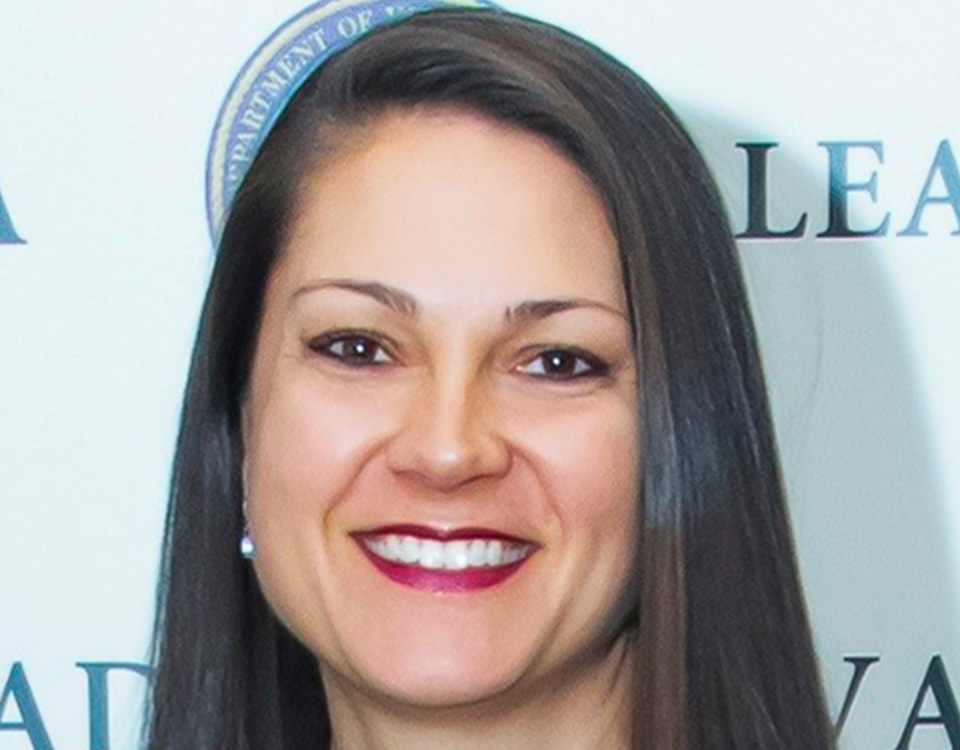
Safety Planning in the Emergency Department
February 22 2022 12:00PM ET Bridget Matarazzo, PsyD
Safety planning and post-acute care are recommended in the VA/DoD Clinical Practice Guideline for the Assessment and Management of Patients at Risk for Suicide. This training will inform attendees about the VHA's Safety Planning in the Emergency Department (SPED) program, which requires safety planning and post-acute care for a subgroup of Veterans seen in an Emergency Department or Urgent Care Center.
Bridget B. Matarazzo, PsyD is the Director of Clinical Services at VA's Rocky Mountain MIRECC for Suicide Prevention. She is Co-Director of VA's Suicide Risk Management Consultation Program and leads a team that provides implementation support for multiple national VA suicide prevention programs, such as REACH VET and the VA Suicide Risk Identification Strategy. She is also an Associate Professor in the Department of Psychiatry at the University of Colorado, School of Medicine.

Partnering with Firearm Retailers to Promote Temporary Out-of-Home Firearm Storage
January 25 2022 12:00PM ET Gala True, PhD, Mr. Caleb Morse and Joseph Constans, PhD
Given that a majority of suicides involve a firearm, suicide prevention efforts include strategies to create "time and distance" between a person and a loaded firearm. Several state-based coalitions have created online "storage maps" of firearm retailers and law enforcement agencies willing to consider requests for temporary, voluntary gun storage; however, little is known about the lasting outcomes of these initiatives. This presentation describes preliminary findings from The Armory Project, a VA-community partnership with 3 firearm retailers to promote lethal means safety messaging and temporary storage options for suicide prevention. The presenters will discuss lessons learned, including successful strategies to for building VA-community collaboration and facilitators to discussing mental health and suicide prevention in gun shops.
Gala True, PhD, is an Investigator with the South Central Mental Illness Research, Education, and Clinical Center (MIRECC) at the Southeast Louisiana Veterans Health Care System and Associate Professor in the Section on Community and Population Medicine at Louisiana State University School of Medicine. Dr. True’s research focuses on improving access to care and the health of individuals and communities through patient-centered and community-engaged research approaches.
Caleb Morse is an 11-year Army combat veteran with multiple deployments in support of Operation Iraqi Freedom. A Louisiana native, Caleb is the owner and operator of the Rustic Renegade, a firearms retail shop in Lafayette that also offers coffee, gifts, and a gathering place for veterans and firearms enthusiasts. Caleb is also part of The Armory Project offering out-of-home storage options in his gun shop.
Joseph Constans, PhD serves as the Senior Program Manager for Suicide Prevention in the Office of Research and Development, VHA). He has had a 28-year career in VA. For the past 10-years, his research has concerned suicide and homicide prevention with a particular interest in studying firearm attitudes in vulnerable populations. His research program has been supported with funding from VA CSRD, VA HSRD, CDC, and DoD.

Community Prevention Progress: A Look at Governor's Challenge Efforts to Educate Communities on Lethal Means Safety
December 21 2021 12:00PM ET Cicely Burrows-McElwain, Colonel Wanda Wright & Nicole Gore
The session will introduce participants to the work of VA's Community Based Interventions for Suicide Prevention (CBI-SP) model of community engagement focused on specific efforts for addressing lethal means safety in the Veteran community as one component of the comprehensive approach to suicide prevention that is outlined in the VA's National Strategy to End Veteran Suicide. Efforts to increase implementation of lethal means safety education and training is underway as a priority area of focus taken on by states that participate in the VA/SAMHSA Governor's Challenge (GC) program.
Mrs. Cicely Burrows-McElwain, LCSW-C serves as Director of the Technical Assistance Resource Center for Community Based Interventions for Suicide Prevention in OMHSP. Her efforts are focused on strengthening cross-agency collaboration between VA, the U.S. Department of Health and Human Services, and the U.S. Department of Defense to engage communities across the nation in adoption of the public health approach to suicide prevention and supporting the behavioral health needs of service members, Veterans and their families.
Col. Wanda Wright, BS, MBA, MPA, MA is the third generation of her family to serve in the U.S. military and has three decades of military experience. She currently serves as the Director of Arizona's Department of Veterans' Services. In 2018, Col. Wright was appointed to VA's Advisory Committee on Women Veterans, an expert national panel that advises the secretary on issues and programs impacting women Veterans.
Ms. Nicole Gore, BS, MEd joined the Virginia Department of Behavioral Health and Developmental Services in January 2016. As Suicide Prevention Coordinator, she is responsible for the development and implementation of a comprehensive approach to address suicide prevention across the Commonwealth, as well as researching best practices in suicide prevention. Ms. Gore serves as a liaison to partners across Virginia to assist in the development and promotion of best practices for successful implementation of suicide prevention strategies.

Community-Based Interventions for Veteran Suicide Prevention (CBI-SP)
November 23 2021 12:00PM ET Aaron E. Eagan, RN, MPH
This presentation will familiarize attendees with the evidence supporting CPG Recommendation #19 Community-Based Interventions. It will also focus on how the VA is implementing CBI-SP in a national model to facilitate community coalition building. For state-level prevention, OMHSP is supporting expanding the Governor's Challenges to Prevent Suicide Among service members, Veterans, and their Families, where state-level policymakers will partner with local leaders to implement a comprehensive suicide prevention plan, with a goal to reach all 50 states by the end of FY22. For local community action, OMHSP is supporting expansion across all Veterans Integrated Service Networks (VISNs) of a Community Engagement and Partnerships — Suicide Prevention (CEP-SP) program focused on community coalition-building coupled with targeted outreach and education, as well as the Together With Veterans (TWV) program, a VA Office of Rural Health program focused on empowering and supporting Veteran leadership for suicide prevention.
Mr. Eagan is the Director of Community-Based Suicide Prevention for the VA Office of Mental Health and Suicide Prevention. He has more than 25 years of nursing and healthcare experience and has developed a diverse array of medical, public health, and leadership experience. Mr. Eagan earned his Bachelor of Science in Nursing from the University of Central Florida and a Master of Public Health from the University of South Florida. Over the last several years he has led the implementation of the REACH VET predictive risk model in a national clinical care program and more recently, the launch of a Caring Letters program for the Veterans Crisis Line that will provide more than 90,000 Veterans a year with an evidenced-based intervention for suicide prevention. Mr. Eagan now leads an initiative spreading community-based suicide prevention interventions across the VA system.

Problem Solving Therapy for Suicide Prevention
October 26 2021 12:00PM ET Shannon M. Sisco, PhD
This webinar will address the CPG recommendation and evidence base related to offering problem solving therapies for individuals at risk for suicide. Dr. Sisco will describe the evolution of Problem Solving Training and Problem Solving Therapy within VA. The main focus of this presentation will be on providing VA clinicians with an overview of Problem Solving Therapy for Suicide Prevention (PST-SP), a new evidence-based protocol being offered as a national EBP training starting in 2021. PST-SP is a relatively brief, flexible, transdiagnostic intervention that can be implemented across a variety of clinical settings.
Dr. Sisco is a clinical psychologist and is currently serving as the Interim Problem Solving Therapy (PST) Training Program Coordinator for the National PST Provider Training Program within the Office of Mental Health and Suicide Prevention and VISN 6 MIRECC. She also serves as the Whole Health Coordinator and Health Specialist at the Michael E. DeBakey VA Medical Center in Houston, Texas. She has served as a consultant and master trainer for PST since 2016, and as a national subject matter expert in PST since 2018.

The Empowerment Plan: Enhancing the Safety Plan with Acceptance and Commitment Therapy as a Contextual Behavioral Approach to Repertoire Expansion
September 28 2021 12:00PM ET Jonathan Weinstein, PhD, Emily B. Kroska, PhD & Robyn D. Walser, PhD
The purpose of this live, knowledge-based virtual training is to discuss the clinical utility of suicide prevention safety planning and the added relevance of Acceptance and Commitment Therapy (ACT), a contextual behavioral approach, for suicide prevention. This program will specifically describe how an ACT approach can inform steps, used by healthcare teams, in the safety planning process when it comes to understanding the emotions and values of high-risk patients. Lastly, this program will explore the relevance of repertoire expansion in the context of crisis management.
Dr. Weinstein is a clinical psychologist and Suicide Prevention Coordinator at the VA Hudson Valley HCS, and an Assistant Professor of Psychiatry and Behavioral Sciences at New York Medical College. Jonathan did his undergraduate work at Vassar College, and a Ph.D. at the University of Mississippi. Jonathan has written widely about empowerment for a variety of settings. He lives in Westchester, NY, with his wife and occasional co-author, and two very special children.
Dr. Kroska is a Clinical Assistant Professor at the University of Iowa. As a licensed psychologist and health service provider in Iowa, she supervises graduate trainees, conducts and mentors research in her THRIVE Lab, and teaches courses in Acceptance and Commitment Therapy and behavior therapies. Her research centers on women's health, the effectiveness of brief interventions, and the sequelae of trauma. Emily is a member of ACBS, ABCT, and APA.
Dr. Walser is staff at the National Center for PTSD, co-director of the Bay Area Trauma Recovery Center and Assistant Clinical Professor at University of California, Berkeley. As a licensed clinical psychologist, she maintains an international training, consulting, and therapy practice. Dr. Walser is the author of 6 books including The Heart of ACT. Robyn has served as President for the Association for Contextual and Behavioral Science and is a Fellow of that organization.

Recordings
Adobe Connect (non-CEU)Empowering Veterans through Crisis Response Planning & the Safety Planning Intervention
August 24 2021 12:00PM ET Craig Bryan, PsyD, ABPP & Wendy Batdorf, PhD
This webinar will review CPG Recommendation #8, which relates to crisis response planning and safety planning. The presenters will review the evidence base for crisis response planning and the Safety Planning Intervention (SPI). They will review each type of plan, highlighting similarities and differences. Additionally, there will be a review of Advanced Training in the SPI (ASPI) in the VA. Attendees will be able to discuss how crisis response plans and safety plans positively impact Veteran outcomes by reducing suicidal behaviors.
Dr. Bryan is a board-certified clinical psychologist in cognitive behavioral psychology, and an internationally recognized expert on suicide prevention, trauma, and resilience. He is the Stress, Trauma, and Resilience (STAR) Professor of Psychiatry and Behavioral Health at The Ohio State University Wexner Medical Center, and is the Division Director for Recovery and Resilience. Dr. Bryan's research has been funded by a wide range of agencies including the Department of Defense, the National Institutes of Health, the Boeing Company, and the Bob Woodruff Foundation.
Dr. Batdorf is a licensed Clinical Psychologist with over 10 years' experience serving as a National Evidence-Based Training Program Coordinator within the Office of Mental Health and Suicide Prevention. Dr. Batdorf currently manages the Advanced Training in the Safety Planning Intervention and Cognitive Behavioral Therapy for Depression Training Programs. Outside of her role at VA, she enjoys an active lifestyle of running, hiking, and traveling the world with her family.

Recordings
Adobe Connect (non-CEU)(Emotion-Centered) Problem Solving Therapy and Suicidality
July 27 2021 12:00PM ET Art Nezu, PhD, DHL, ABPP
Problem-Solving Therapy (PST), recently revised and renamed Emotion-Centered PST, is an evidenced-based psychosocial intervention found to be effective for a wide range of client populations and psychological problems. The purpose of this webinar is to describe the relevance of EC-PST as a treatment and prevention approach to reduce suicidality. As such, I will present a conceptual problem-solving model of suicide in addition to various clinical guidelines.
Dr. Nezu, a board-certified psychologist, is Editor-in-Chief of Clinical Psychology: Science and Practice and Associate Editor of the American Psychologist, as well as previous Editor of the Journal of Consulting and Clinical Psychology. He has received numerous awards for his research and professional contributions including an honorary doctoral degree. He has been funded by NCI, NIMH, VA, DoD, Pew Charities Trusts, and the Infinite Hero Foundation. Dr. Nezu is the co-developer of Problem-Solving Therapy.
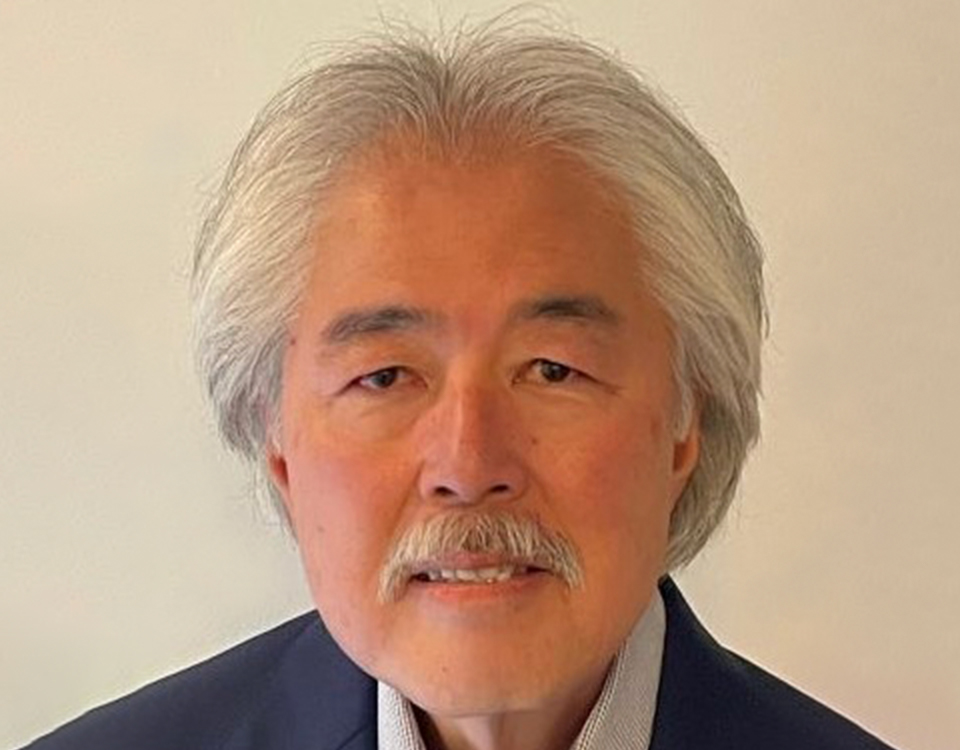
Perspectives on Firearm-Related Conversations in Clinical Settings
June 22 2021 12:00PM ET Joseph Simonetti, MD, MPH
The purpose of this presentation is to provide a synthesis of current knowledge related to perspectives on conducting firearm-related conversations in clinical spaces. This presentation may be informative for clinicians, administrators and other stakeholders aiming to promote lethal means conversations among at-risk patients.
Dr. Simonetti is an Assistant Professor of Medicine in the Division of Hospital Medicine at the University of Colorado School of Medicine. He is a board-certified internist who serves as a teaching attending in the Hospital Medicine Group at the Rocky Mountain Regional VA Medical Center. He is a researcher within the VA Rocky Mountain Mental Illness Research, Education and Clinical Center for Suicide Prevention. His research focuses on reducing the burden of firearm-related suicide among Veterans.
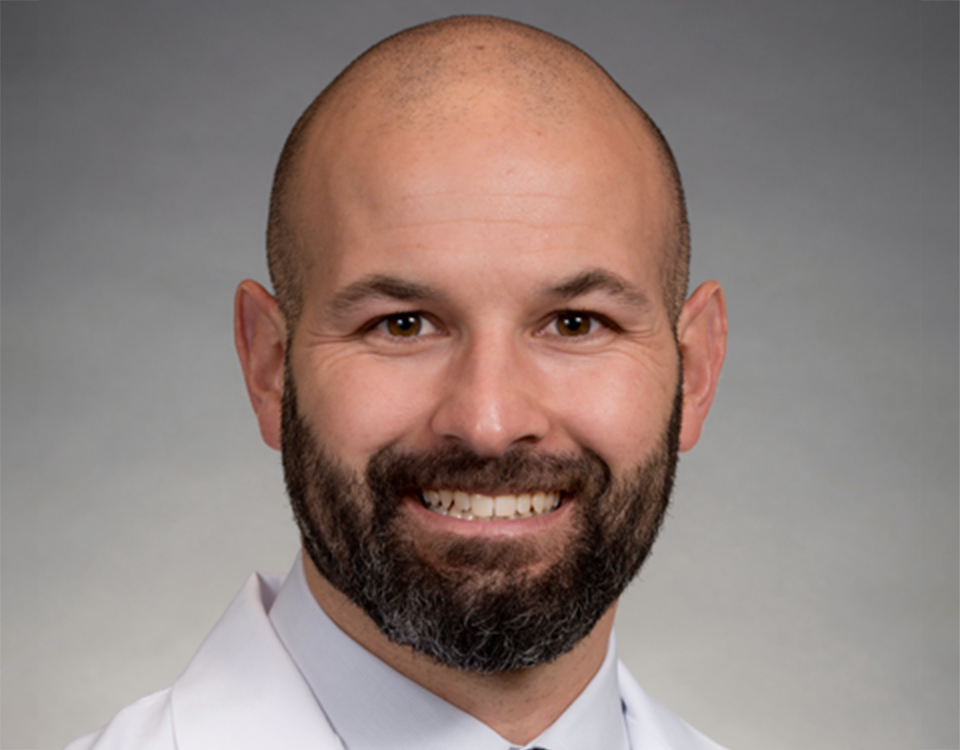
WHO-BIC as a Strategy to Prevent Suicide After Hospitalization
May 25 2021 12:00PM ET Natalie Riblet, MD, MPH
The purpose of this presentation is to describe the World Health Organization's Brief Intervention and Contact Program (WHO-BIC) intervention. The WHO BIC was developed and tested in low- and middle-income countries to prevent death by suicide after emergency room or hospital admission. The presentation will include a discussion of findings from individual trials of the WHO BIC program. In addition, I will share preliminary work that has been conducted in the Department of Veterans Affairs to understand the applicability of WHO BIC to Veteran populations.
Natalie Riblet graduated with an MD from Dartmouth Medical School in 2008 and an MPH from Dartmouth in 2012. She completed her residencies at Dartmouth, including general preventive medicine and public health in 2012 as well as general psychiatry in 2014. She developed a VA adaptation of the World Health Organization Brief Intervention and Contact Program. In Natalie's current research roles, she is focused on identifying and testing interventions to prevent death by suicide.
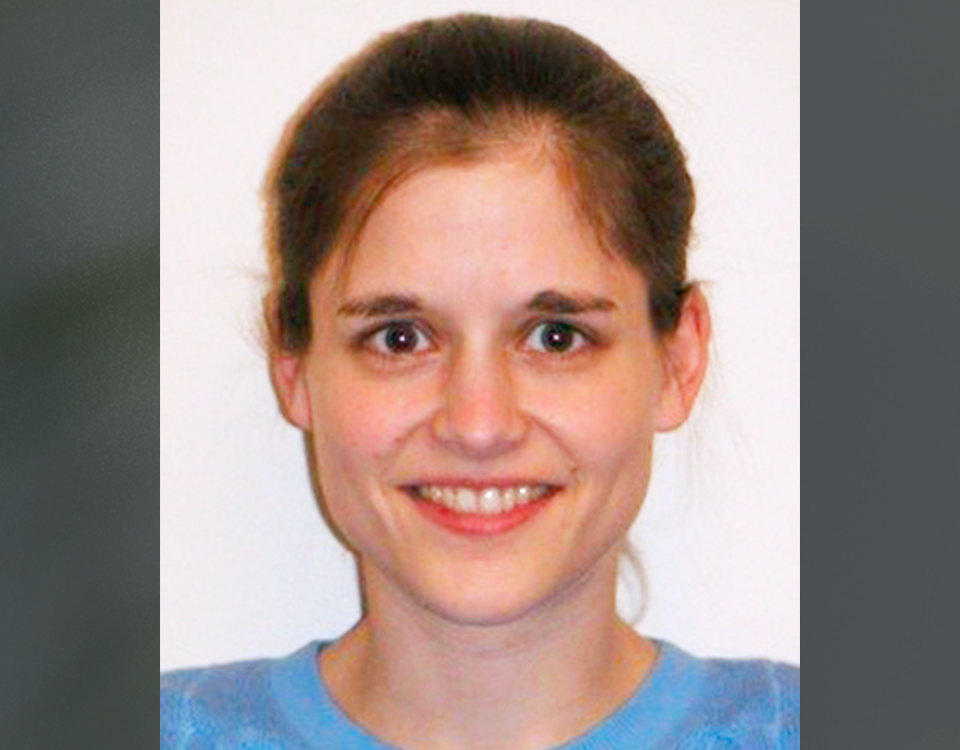
Recordings
Adobe Connect (non-CEU)Cognitive Behavioral Therapy for Suicide Prevention
April 27 2021 12:00PM ET Gregory K. Brown, PhD
In 2019, the VA/DoD Clinical Practice Guideline for the Assessment and Management of Patients at Risk for Suicide strongly recommended "using cognitive behavioral therapy-based interventions focused on suicide prevention for patients with a recent history of self-directed violence to reduce incidents of self-directed violence". The overall purpose of this presentation is to provide an overview of Cognitive Behavioral Therapy for Suicide Prevention (CBT-SP) including the key cognitive and behavioral strategies that are used to target suicidal behavior and the evidence supporting its use.
Dr. Brown is an internationally renowned researcher whose work has led to transformational advances in the treatment of suicidal individuals such as developing the Safety Planning Intervention and Cognitive Therapy for Suicide Prevention with his colleagues. Dr. Brown is a Research Psychologist at the Corporal Michael J Crescenz VA Medical Center and Master-Trainer with the Evidenced-Based Psychotherapy (EBP) section of the Office of Mental Health and Suicide Prevention where he co-developed training programs for VA providers to use EBPs to reduce Veteran suicide risk.

Evidence-Based Practice in Suicide Risk Screening and Evaluation: Why, What, How, and When?
March 9 2021 12:00PM ET Nazanin Bahraini, PhD
Routine screening for suicide risk in healthcare settings has been an area of considerable debate. However, an accumulating body of evidence indicates that suicide risk screening and follow up evaluation are critical components of effective, patient-centered suicide risk management. The purpose of this webinar training is to provide an overview of evidence-based recommendations for suicide risk screening and evaluation and to discuss strategies for implementation of these practices in routine healthcare settings.
Dr. Bahraini is Director of Education and a Clinical Research Psychologist at the Rocky Mountain MIRECC for Suicide Prevention and Associate Professor of Psychiatry and Physical Medicine and Rehabilitation at the University of Colorado Anschutz School of Medicine. Dr. Bahraini's research focuses on designing and testing adaptive strategies to improve implementation of evidence-based practices in suicide prevention. She is also interested in novel, transdiagnostic approaches that target common underlying processes across mental disorders.

Digital Delivery of Treatment Protocols as Upstream and Downstream Suicide Prevention Strategies: State of the Science
February 9 2021 12:00PM ET Lisa A. Brenner, PhD, ABPP & Carolyn Greene, PhD
Even prior to COVID-19, VHA committed significant resources towards web-based versions of evidence-based psychotherapies as a means of increasing access to care. These include interventions aimed at insomnia (Path to Better Sleep, CBT-I); and, managing stress (Moving Forward, Problem Solving Therapy). Both are also useful upstream suicide prevention interventions. Efforts are underway to develop a new web-based program to serve as a downstream suicide prevention intervention based on VA/DOD Clinical Practice Guidelines. This presentation discusses the current state of the science, and presents VHA digital resources, with the goal of increasing their use.
Dr. Brenner is a Board-Certified Rehabilitation Psychologist who serves as the Director of the Department of Veterans Affairs Rocky Mountain Mental Illness Research, Education, and Clinical Center (MIRECC). She is also a Professor of Physical Medicine and Rehabilitation (PM&R), Psychiatry, and Neurology at the University of Colorado. Her primary area of research interest is traumatic brain injury, co-morbid psychiatric disorders, and negative psychiatric outcomes including suicide. Dr. Brenner has numerous peer-reviewed publications and participates on national advisory boards.
Dr. Greene is a nationally recognized expert in using technology to increase access to high-quality healthcare. She is the National Manager of VA's award-winning program of web-based mental health resources found at www.VeteranTraining.va.gov. In addition to her role at VA, Dr. Greene is an Associate Professor at the University of Arkansas where she is the Director of Team Science at their Translational Research Institute and Associate Director of the KL2 Mentored Research Scholars Program.

Recordings
Adobe Connect (non-CEU)Home Visit as a Suicide Prevention Strategy
January 11 2021 12:00PM ET Bridget Matarazzo, PsyD
Home visits are recommended in the VA/DoD Clinical Practice Guideline for the Assessment and Management of Patients at Risk for Suicide. This training informs attendees about the research done on home visits that led to this recommendation. This training also describes a clinical program, called the HOME Program, that involves a home visit and has been implemented in VA.
Dr. Matarazzo is the Director of Clinical Services at VA's Rocky Mountain MIRECC for Suicide Prevention. She is Co-Director of VA's Suicide Risk Management Consultation Program and leads a team that provides implementation support for multiple national VA suicide prevention programs, such as REACH VET and the VA Suicide Risk Identification Strategy. She is also an Associate Professor in the Department of Psychiatry at the University of Colorado, School of Medicine.

Recordings
Adobe Connect (non-CEU)Suicide Risk Stratification and Documentation
December 15 2020 12:00PM ET Hal S. Wortzel, MD
Risk management is a necessity of mental health practice, and this requires a thoughtful approach to suicide risk assessment and management. Therapeutic risk management (TRM) is a process based upon clinical risk management, one that is patient-centered, supportive of the treatment process, and maintains the therapeutic alliance. A crucial element of TRM is risk stratification and documentation. This program will address risk stratification that attends to risk in terms of both severity and temporality, and will offer related documentation strategies.
Dr. Hal Wortzel is a forensic neuropsychiatrist at the Rocky Mountain MIRECC, where he serves as Director of Neuropsychiatric Consultation Services and Co-Director for the National Suicide Risk Management Consultation Program. He is an Associate Professor of Psychiatry, Neurology and Physical Medicine & Rehabilitation at of the University of Colorado, and serves as the Michael K. Cooper Professor of Neurocognitive Disease, and as Faculty for the Program in Forensic Psychiatry.

Perceived Barriers and Facilitators of Clozapine Use: A National Survey of Veterans Affairs Prescribers
November 17 2020 12:00PM ET Breanna Moody, PharmD & Courtney Eatmon, PharmD, BCPP
Drs. Moody and Eatmon provided an overview of clozapine therapy and its role in suicide prevention for veterans with schizophrenia and schizoaffective disorder. The presenters reviewed a recent study identifying the perceived barriers and facilitators to clozapine prescribing within the VA Health Care System and explored potential interventions for increasing clozapine utilization.

Recordings
Adobe Connect (non-CEU)Ketamine and Esketamine Treatment: Implications for VA Suicide Prevention
October 7 2020 12:00PM ET Deborah Yurgelun-Todd, PhD & Perry Renshaw, PhD, MD, MBA
During this webinar, Drs. Yurgelun-Todd and Perry reviewed recent clinical trials reporting rapid reductions in suicidal ideation (SI) and depressive symptoms following administration of ketamine and esketamine. The presenters summarize the evidence supporting use of ketamine and esketamine in patients with suicidal ideation and major depressive disorder, as well as, highlight the implications of ketamine and esketamine research for VA suicide prevention.

Recordings
Adobe Connect (non-CEU)It IS That Simple: Nondemanding Caring Contacts for Suicide Prevention
September 10 2020 12:00PM ET Kate Comtois, PhD, MPH & Amanda Kerbrat, LCSW
During this webinar, Dr. Comtois and Ms. Kerbat will walk through VA/DoD CPG Recommendation #13 in detail which suggests offering periodic caring communications following a psychiatric hospitalization for suicidal ideation or suicide attempt. The session will review Caring Contacts, an intervention that has been shown to reduce suicidal ideation, attempts, and death. Additional discussion will describe current policies and guidance within VHA that support providing this treatment.

The Status of VA Ketamine & Esketamine Services and Implications for Suicide Prevention
August 27 2020 12:00PM ET Ilse Wiechers, MD, MPP, MHS
During this webinar, Dr. Wiechers provided a review of Recommendation #10 in the VA/DoD Clinical Practice Guideline for the Assessment and Management of Patients at Risk for Suicide. This recommendation suggests offering ketamine infusion as an adjunctive treatment for short-term reduction in suicidal ideation in patients with the presence of suicidal ideation and major depressive disorder. The session walked through the CPG recommendation in detail and review the evidence supporting use of ketamine in patients with treatment resistant depression and severe suicidal ideation as well as the limitations of the existing literature. Additional discussion described current policies and guidance within VHA that support providing this treatment.

Lethal Means Safety: Evidence-Base, Current Practices, and Next Steps
July 28 2020 12:00PM ET Joseph A Simonetti, MD, MPH
During this webinar, Dr. Simonetti reviewed the current evidence supporting recommendations to promote lethal means safety for individuals at risk of suicide, the current state of clinical practice and research, and critical next steps in research, education and clinical practice for moving forward.
Due to technical difficulties, this webinar was not recorded. Please visit the Rocky Mountain MIRECC's Lethal Means Safety website for related training and more information on lethal means safety.
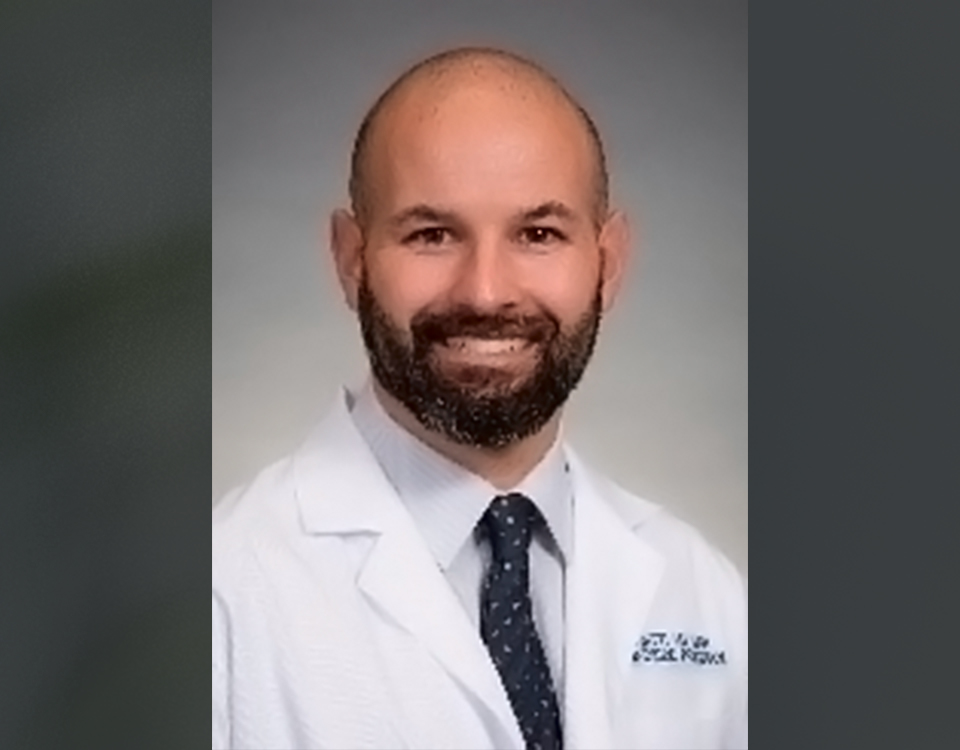
Recordings
Note: No CEUs are available for this webinarAn Introduction to Dialectical Behavior Therapy
June 30 2020 12:00PM ET Sara J. Landes, PhD
During this webinar (presented and recorded on June 30, 2020), Dr. Sara Landes provided an overview of DBT, focused on biosocial theory for those new to DBT and those who want to make better referrals to DBT. Note: No CEUs are available for this webinar

Recordings
Adobe Connect (non-CEU)Looking for more? Check out our Suicide Risk Management Lecture Series.




















